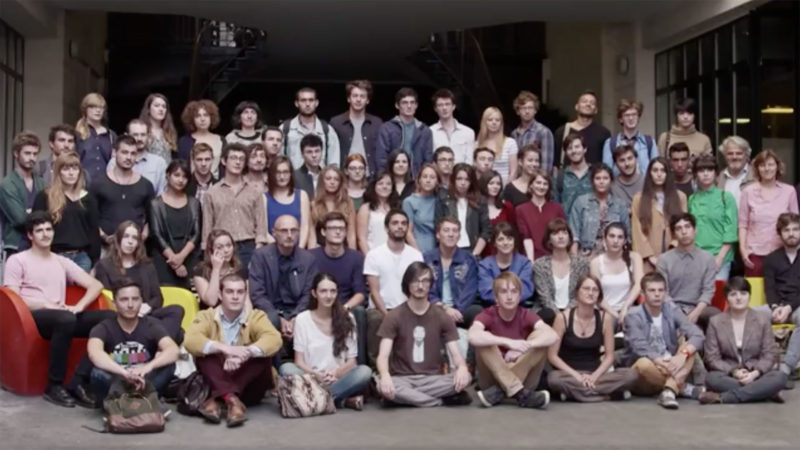The French documentary The Graduation (Le Concours) – on limited release this week – begins with a crowd of young men and women congregating outside a lecture hall, waiting to start a written exam. The doors are opened and this gathering of 20-somethings rush through in a giddy frenzy.
The reason for this disconcerting eagerness is that these young folk are applying to La Fémis – a film school in Paris. It’s France’s premiere such institution, therefore one of the best in the world because the French are very particular when it comes to cinema.
It’s generously funded and highly selective. How highly selective? Well, each year thousands of applicants apply for around 50 places over a period of some months. That exam is the start of that process of brutal whittling down, hence the bracing sense of excitement – or is it, I wondered as the film reveals the low odds of securing a place that face aspiring film-makers, a kind of desperate hope?
Director Claire Simon, who teaches at the school, captures this gruellingly exacting slog of yet more exams, practical tests and the dreaded oral in front of a committee of French cinema’s leading lights. She sticks entirely within the school, and the film amounts to almost two hours’ worth of film-makers and educationalists discussing prospective students in featureless rooms. It hardly sounds promising, and yet The Graduation is fascinating, gripping even.

For all the attention to bureaucratic detail, it’s underpinned with high-stakes human drama. These hordes of keen young things are extraordinarily hungry for the few places on offer, and watching them sometimes succeed, and more often than not stumble in their attempt to impress their stony-faced interlocutors is a form of spectator sport, or high-brow reality TV: Pop Idol for an arthouse crowd.









